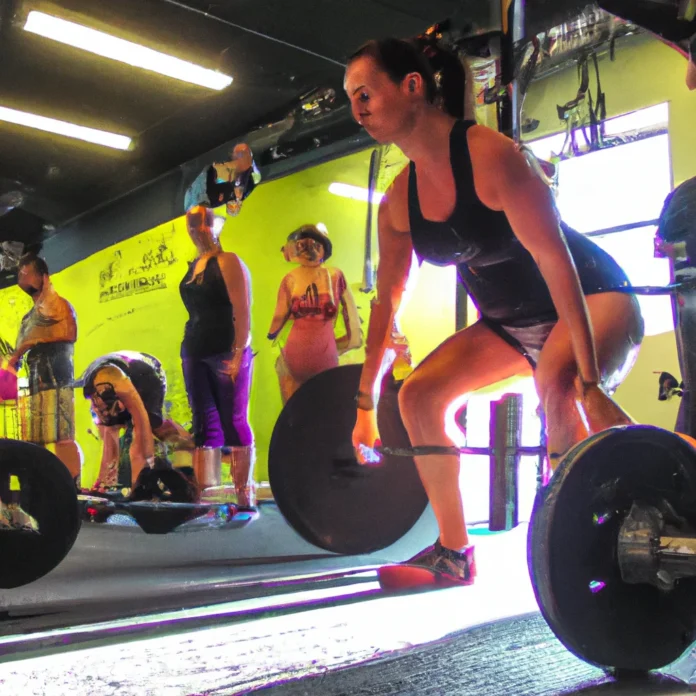How to Burn More Fat While Strength Training
In the pursuit of a healthier and fitter body, many individuals turn to strength training as a way to enhance their physical capabilities. Burning fat while building muscle is a common goal, and it can be achieved through various strategies. In this comprehensive guide, we will discuss effective methods to maximize fat loss during strength training, ensuring that your efforts yield optimal results.
Understanding Fat Loss and Strength Training
To effectively burn fat while engaging in strength training, it is essential to understand the relationship between muscle mass and metabolism. Muscle tissue is metabolically active, meaning that the more muscle you have, the more calories your body burns at rest. This concept is fundamental in creating a successful fat-loss strategy.
The Science Behind Fat Loss
When we discuss fat loss, we are primarily referring to the concept of caloric deficit. A caloric deficit occurs when the number of calories burned exceeds the number of calories consumed. Strength training plays a vital role in this process by increasing muscle mass, which in turn elevates the basal metabolic rate (BMR). Hence, incorporating strength training into your routine can significantly contribute to achieving and maintaining a caloric deficit.
Optimize Your Strength Training Program
To burn more fat effectively, we need to optimize your strength training program. Here are some strategies that can enhance fat loss during strength training sessions:
1. Focus on Compound Movements
Compound exercises engage multiple muscle groups at once, leading to greater calorie expenditure. Exercises such as squats, deadlifts, bench presses, and pull-ups are excellent choices. By incorporating these movements into your routine, you will not only build strength but also burn more fat in the process.
2. Incorporate High-Intensity Interval Training (HIIT)
Combining strength training with HIIT workouts can significantly elevate your heart rate and increase calorie burn. HIIT involves short bursts of intense activity followed by rest or low-intensity periods. For instance, performing a set of squats followed by a 30-second sprint can enhance your fat-burning potential while building muscle.
3. Maintain Proper Nutrition
Your nutrition plays a pivotal role in fat loss. Consuming a balanced diet rich in lean proteins, healthy fats, and complex carbohydrates can support muscle recovery and growth. Prioritize foods such as chicken breast, fish, legumes, whole grains, and plenty of fruits and vegetables. Additionally, ensure you are hydrating adequately to maintain optimal performance during workouts.
Implementing Effective Recovery Strategies
Recovery is just as important as the workouts themselves. Inadequate recovery can hinder your progress and lead to muscle fatigue. Here are some tips for effective recovery:
1. Ensure Adequate Sleep
Quality sleep is essential for muscle recovery and overall health. Aim for 7-9 hours of sleep per night to allow your body to repair itself and maintain hormonal balance, which is critical for fat loss.
2. Active Recovery Days
Incorporating active recovery days into your routine can enhance muscle recovery while still allowing you to burn calories. Activities such as walking, yoga, or light cycling can help keep your metabolism elevated without putting excessive stress on your muscles.
Utilizing Supplements for Fat Loss
While a well-rounded diet should be your primary source of nutrients, certain supplements can enhance your fat loss efforts. Consider incorporating the following:
1. Protein Supplements
Protein supplements can aid in muscle recovery and growth. Consuming a protein shake post-workout can help replenish amino acids and promote muscle repair.
2. Fat Burners
Fat-burning supplements can help boost metabolism and support weight loss. However, they should be used in conjunction with a proper diet and exercise program for the best results.
Buy Myprotein Products
Explore our range of Myprotein products to complement your strength training and fat loss journey. Choose from protein powders, vitamins, and more to support your fitness goals.
Track Your Progress
To ensure you are on the right path, tracking your progress is essential. Regularly assess your body composition, strength levels, and overall well-being. Utilize tools such as:
1. Body Measurements
Taking measurements of your waist, hips, and other areas can give you a clear picture of fat loss, even if the scale doesn’t reflect significant changes.
2. Strength Assessments
Keep a record of your strength gains. Increasing weights or reps in your lifts is a clear indicator of progress and improved fitness levels.
Creating a Balanced Routine
For optimal fat loss, it is crucial to create a balanced routine that includes both strength training and cardiovascular exercise. Here’s how to structure your week:
Sample Weekly Workout Plan
- Monday: Full Body Strength Training
- Tuesday: HIIT Cardio
- Wednesday: Upper Body Strength Training
- Thursday: Active Recovery (yoga or walking)
- Friday: Lower Body Strength Training
- Saturday: Steady-State Cardio (running or cycling)
- Sunday: Rest or light activity
The Mental Aspect of Fat Loss
Achieving fat loss goals is not solely physical; it also requires a strong mental approach. Here are some strategies to enhance your mental resilience:
1. Set Realistic Goals
Setting achievable and measurable goals can keep you motivated. Aim for small, incremental changes rather than drastic transformations.
2. Stay Positive
A positive mindset can significantly influence your success. Surround yourself with supportive individuals and celebrate your achievements, no matter how small.
Conclusion
In conclusion, burning more fat while strength training is entirely attainable with the right strategies. By focusing on compound movements, incorporating HIIT, maintaining proper nutrition, utilizing supplements, and tracking progress, you can optimize your fat loss journey. Remember, “Strength is not just about how much you can lift, but how much you can overcome.”
For more insights on health and wellness, visit News Box for the latest articles and tips.

